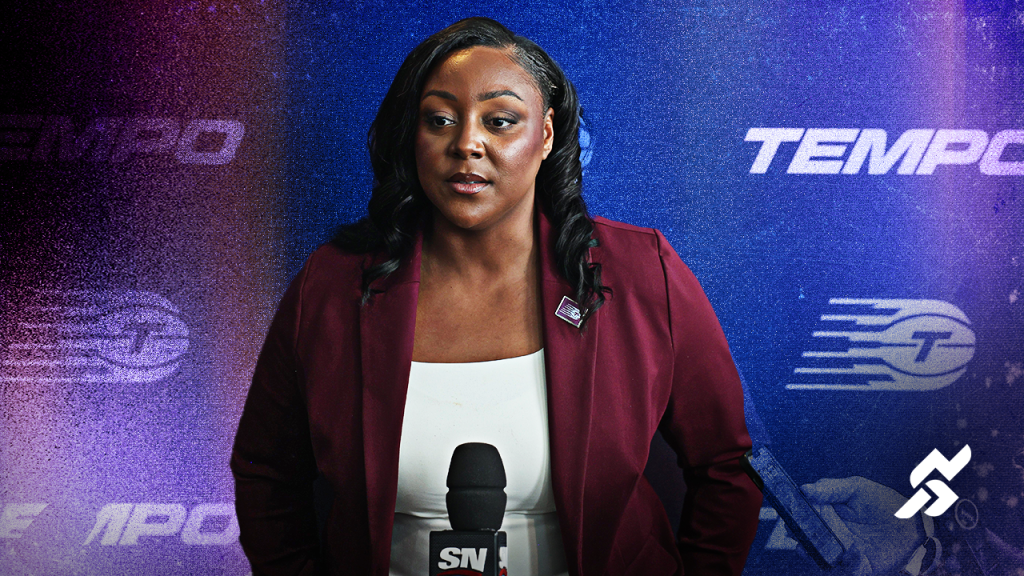Last week, Toronto Tempo general manager Monica Wright Rogers hosted about two dozen WNBA agents for a meet-and-greet at a local hotel. It was a chance for the first-time GM to help dealmakers get better acclimated to the Tempo’s operations before the expansion franchise’s inaugural season.
WNBA agents got a chance to ask about facilities, connect with front office staff, including team president Teresa Resch, and receive guidance on navigating the city of Toronto. The gathering also included a session on immigration in which the Tempo discussed with agents how to assist clients if they land with the WNBA’s first franchise outside of the United States.
It’s the latest move by the Tempo aimed at putting agents at ease about one of their players playing on the squad as the club readies for its 2026 debut.
As front offices across the league—especially those from expansion organizations—look to strengthen their relationships with agents, the networking also goes in the other direction. There has been an influx of new player representatives eager to build relationships with executives.
The Women’s National Basketball Players Association (WNBPA) is expecting a notable increase in certification applications over the next year, according to a person familiar with the matter, which supports the steady level of applicants since the last CBA was inked back in 2020.
The meet-and-greet frenzy between teams and agents is par the course for a league seeing rapid growth, former WNBA star and active media personality Chiney Ogwumike said in a video interview.
“We’re in our expansion era—literally and figuratively,” Ogwumike said. “The investment, marketing and interest are hot. We’re in our sweet spot right now. We have everything we need to take off, and we’re witnessing it in real time.”
The Tempo and Portland Fire will begin their first seasons next year. The league plans to add three additional teams by the end of 2030. The rapid expansion, pushing toward a record 18 clubs, coincides with the ongoing collective bargaining negotiations that are expected to multiply current player salaries once a new accord is finalized.
The expectation of increased wages, media exposure and a widening player pool has created unparalleled interest for prospective agents to represent players who are becoming more culturally relevant.
“I’m new, but I’m rolling up my sleeves and figuring it out,” Brooke Hogg, an athlete mental health coach recently certified by the WNBPA, said in a video interview. Hogg is among a swath of new agents feeling inspired by the league’s ambitious goals.
It will soon be more challenging for aspiring agents, as the WNBPA plans to heighten certification criteria. This includes potentially adding an exam, according to a source, which would resemble other major sports league associations like in the NBA.
“I saw the writing on the wall,” Elite Sports Empowerment CEO Vincent Demps, who helps agents get their WNBA licenses, said in a phone interview. “Anybody with some business savvy sees what direction we’re headed in… The Caitlin Clarks and Angel Reeses are working their magic 1755270851, and there’s going to be more players to come after them.”
New agents enter an increasingly competitive landscape. There are already more than 150 certified agents in the WNBA. Newcomers face uphill battles trying to recruit potential W clients who have long-standing relationships with seasoned agents at well-established agencies.
They’ll also have to understand how to start relationships with potential clients earlier, as agents are being forced to do in the NIL era in college sports. This can be difficult to navigate for even veteran agents who also cut deals in alt-leagues and with overseas teams.
“You must have experience, and that experience doesn’t come with your law degree,” WNBA agent Boris Lelchitski said in an interview. “Some are more talented than others, and bring on their own relationships, but I don’t see things changing too much.”
There is some degree of uncertainty for all agents without terms of a fresh CBA in place, an impasse that has led to more than 100 players entering free agency this offseason.
The list of players looking for new contracts this summer includes WNBA stars like Sabrina Ionescu, Breanna Stewart and A’ja Wilson. Players intentionally signed deals that expire after this season in anticipation for a new accord where they can potentially receive contracts that triple their current salaries.
Add the likelihood of new variables to parse within an expanded CBA document, and this winter could be transformational—if a little stressful—for agents, too.
